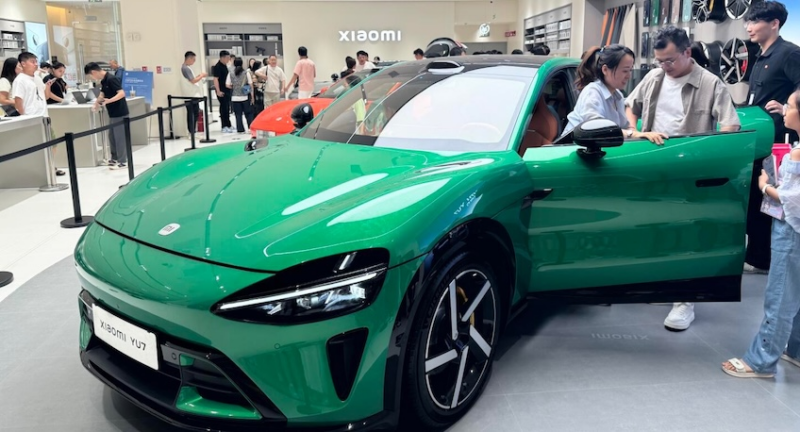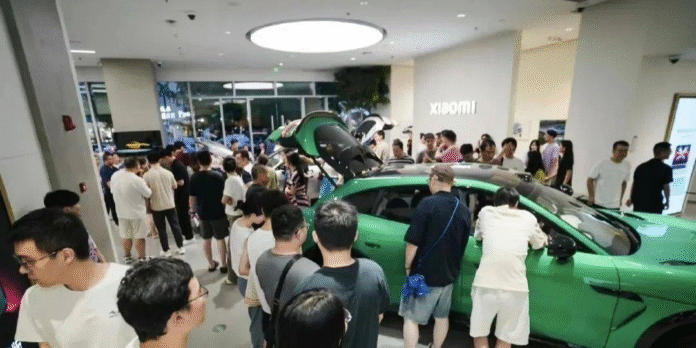The automotive landscape in China is undergoing a seismic shift, with the recent launch of Xiaomi‘s YU7 electric SUV posing a formidable challenge to the long-dominant Tesla Model Y, according to industry observers quoted by Chinese tech media 36kr. Consumers alike are questioning whether the Model Y’s “good old days” in China are truly over, as the YU7 demonstrates unprecedented market traction and other domestic competitors intensify the pressure.
Xiaomi’s entry into the electric vehicle market has been nothing short of a phenomenon. The YU7, starting at 253,500 yuan (35,000 USD), recorded 200,000 pre-orders in just three minutes, followed by 289,000 in an hour, and 240,000 locked-in orders within 18 hours. A visit to a Xiaomi store in Shanghai revealed “terrifying” foot traffic, with queues for test drives – a sight rarely seen for any automotive brand.

According to 36kr, the YU7’s appeal is broad, attracting not only young “Mi fans” but also potential pure electric SUV buyers drawn by its cost-effectiveness, and even traditional internal combustion engine vehicle owners over 50 years old who are new to new energy vehicles.
The only apparent hurdle to the YU7’s further market dominance is production capacity. The current delivery period for the most popular “Standard Edition” has stretched to 56-60 weeks, with a continuing trend of extension, meaning customers face a wait of over a year. While this extended wait might deter some buyers, the YU7 is undeniably a hot commodity, poised to reshape the previously rigid medium-sized pure electric SUV market.
The Model Y, in particular, is feeling the heat. While it sold over 480,000 units in China in 2024, securing the top sales spot for a single model, its position is now under siege. Domestic medium-sized pure electric SUVs, often referred to as “Model Y killers,” have been emerging over the past two years. However, these earlier challengers largely failed to impact the Model Y’s standing.
The situation has changed in 2025. The refreshed Model Y’s confident price increase provided an opening for aggressive domestic SUVs. Model Y’s retail sales in China for the first five months of 2025 have shown significant year-over-year declines: in May 2024, 39,985 units were sold, representing a difference of over 13,000 units.
At YU7’s launch event, Xiaomi CEO Lei Jun’s “tribute and comparison” to the Model Y clearly signaled Xiaomi’s ambition to dethrone it.
This dynamic is already evident in the medium-sized pure electric sedan market, where Xiaomi’s SU7 has directly impacted the Model 3. In May, the SU7 sold 28,013 units, while the Model 3 sold only 13,818 units, a difference of nearly 15,000 units.

The challengers are also expanding rapidly. Following the YU7, Xpeng’s G7 is set to launch this week, and Li Auto’s i6 is expected in September. In Q3, Nio’s second brand, Onvo, will introduce the L90, which is projected to reach the same price range with its Battery-as-a-Service (BaaS) option.
The Model Y is facing its most challenging survival environment since its localisation in China. Conservative estimates suggest a monthly sales decline of 10,000-15,000 units, with cumulative sales for the year potentially falling below 350,000 units.
Source: 36kr


